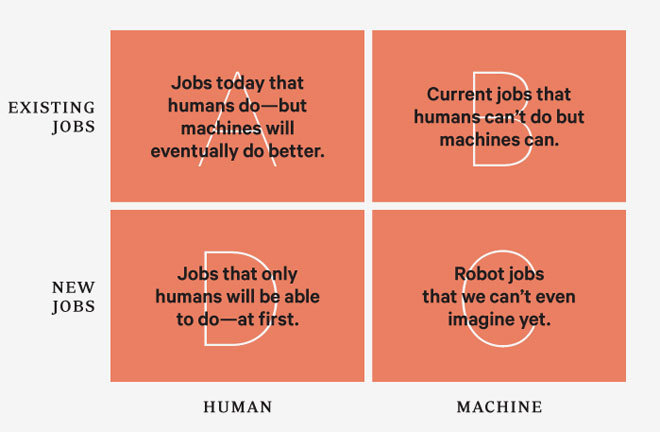James Lovelock: ŌĆśBefore the end of this century, robots will have taken overŌĆÖ
Rich Hua stashed this in Technology
Stashed in: Awesome, The Future, Hive Mind, Robot Jobs, Darwin, Accelerating Returns, Wait But Why
He's 97 and still predicting.
Sometimes described as a futurist, Lovelock has been BritainŌĆÖs leading independent scientist for more than 50 years. His┬ĀGaia hypothesis, which contends that the earth is a single, self-regulating organism, is now accepted as the founding principle of most climate science, and┬Āhis invention of a device to detect CFCs┬Āhelped identify the hole in the ozone layer. A defiant generalist in an era of increasingly specialised study, and a mischievous provocateur, Lovelock is regarded by many as a scientific genius.
...
But all this, he clarifies cheerfully, is more or less academic. ŌĆ£Because quite soon ŌĆō before weŌĆÖve reached the end of this century, even ŌĆō I think that what people call robots will have taken over.ŌĆØ┬ĀRobots┬Āwill rule the world? ŌĆ£Well, yes. TheyŌĆÖll be in charge.ŌĆØ In charge of us? ŌĆ£Yes, if weŌĆÖre still here. Whether theyŌĆÖll have taken over peacefully or otherwise, I have no idea.ŌĆØ
For robots, time happens a million times faster than it does for us. ThatŌĆÖs rather wonderful in a way, isnŌĆÖt it?
He isnŌĆÖt alone in this view:┬Āthe influential philosopher Nick Bostrom┬Āhas persuaded many people that artificial intelligence poses a real threat to the future of humanity; Elon Musk and Stephen Hawking, among others, have called for urgent research┬Āto mitigate the risks. Still, when Lovelock outlines this vision, his tone is so matter-of-fact that for a moment I wonder if heŌĆÖs joking. He isnŌĆÖt. ŌĆ£WeŌĆÖre already happily letting computers design themselves. This has been going on for some time now, particularly with chips, and itŌĆÖs not going to be long before thatŌĆÖs out of our hands, and weŌĆÖll be standing aside and saying, ŌĆśOh well, itŌĆÖs doing a good job designing itself, letŌĆÖs encourage it.ŌĆÖŌĆØ Computers will develop independent volition and intuition (ŌĆ£To some extent, they already haveŌĆØ) and become capable of reproducing themselves, and of evolving. ŌĆ£Oh yes, thatŌĆÖs crucial. WeŌĆÖll have a world where DarwinŌĆÖs working.ŌĆØ Darwinism doesnŌĆÖt work now? ŌĆ£Oh no, weŌĆÖve temporarily turned Darwinism backwards. I mean, we preserve the ones that would not have survived.ŌĆØ
Source is the Road to Superintelligence:┬Ā
http://boingboing.net/2015/01/23/the-road-to-superintelligen.html












9:02 PM Oct 03 2016